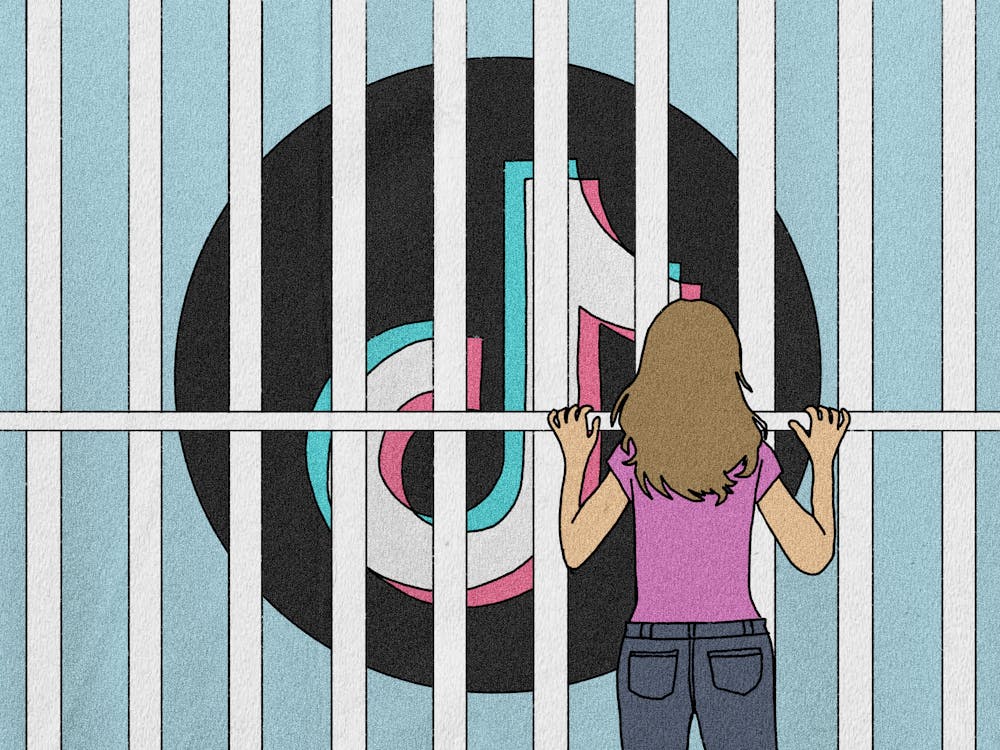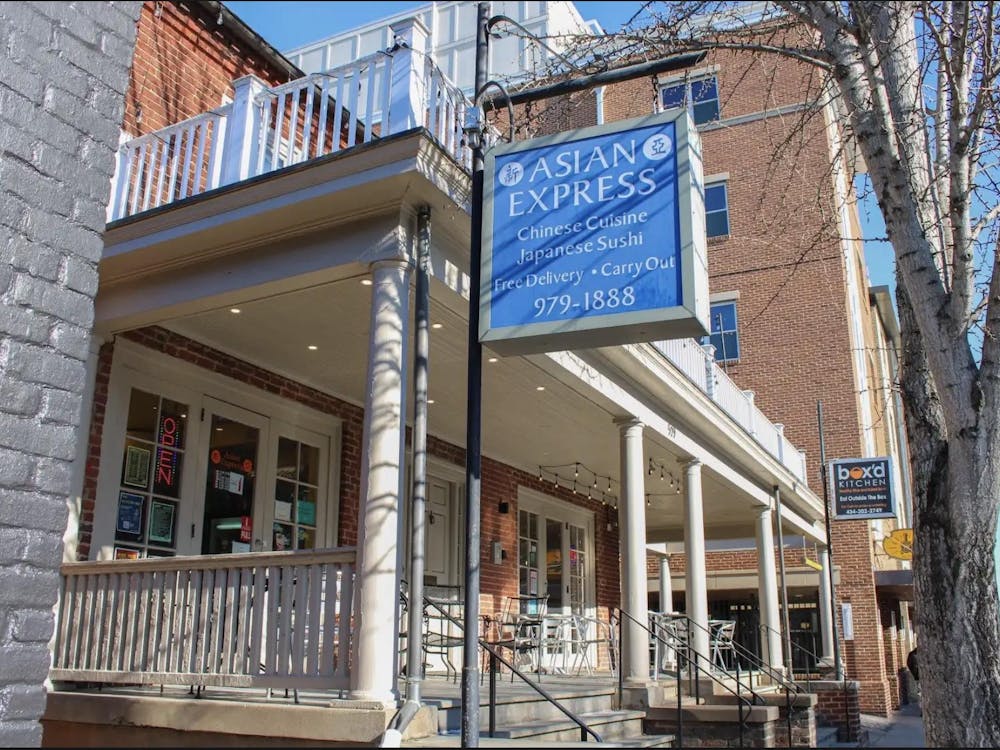Sirens blare. The horn sounds. Cars pull to the side of the road to escape the path of the unstoppable fire truck as it tears down Ridge Street and onto Jefferson Avenue. The truck stops in front of a local Charlottesville residence and firemen quickly file out of the truck and into the front door of the home.
A man lies across the floor and complains of shortness of breath, but the cigarette, which he so adamantly refuses to relinquish from his mouth, suggests that the situation is under control.
It's just another false alarm. Charlottesville fireman Harry Perry explains that the Charlottesville Fire Department usually receives several of these false alarms per day. Yet on a given day, a fire rescue team could be not as fortunate. And the terrorist events which occurred just two weeks ago in New York City, Pennsylvania and Washington reminded the department just how real the potential for disaster can be.
"It's really hard for us to understand just how many people have actually died in total, but it's even harder to compare the number of firemen who have died," senior firefighter Mike Johnson said. "The New York force has lost two or three hundred of their firefighters and we only have a little over a hundred in total. I don't think the magnitude has truly set in."
With graying hair and a mustache, Johnson wears a stern, yet knowing expression. His mannerisms grew even more serious as he discussed the tragic terrorist events. He said that despite all the training in the world, he cannot imagine ever being fully prepared for this type of disaster.
Tim Cersely is a somewhat younger man than Johnson and comes off as slightly less jaded than his more experienced co-worker. Yet Cersely too said he knows that losing fellow firemen would hit home.
"We are a brotherhood here," Cersely said. "We live with the guys in the house sometimes more than we do our own families, so losing a fellow firemen is like losing a brother or sister."
Joe Phillips, a firefighter with light hair and friendly blue eyes said the destruction of the World Trade Center really made him think about his family and that he always is just one call away from a calamity.
It is these thoughts of "what if it had been me or my family?" that have evoked such support from both the Charlottesville Fire Department as well as the general public.
Phillips said the City of Charlottes-ville contacted the Fire Department of New York after the Sept. 11 attacks to see if additional firefighters were needed to respond. But at that point, FDNY said that they did not need any volunteers outside of the state of New York.
So the Charlottesville Fire Department decided to provide support through other avenues.
"That first weekend we started what we came to call a 'boot drive,' and that went over really well," Johnson said.
During the boot drive, local firemen collected money from Charlottesville residents primarily by stopping drivers on the side of the road to drop donations into a fireman's boot.
"It was sort of dangerous for us to go out in the middle of traffic so we started advertising that you could just come down to the station," Johnson said.
He added that the public outpour from Charlottesville has "really been incredible."
In all, the Charlottesville Fire Department raised over $250,000. Part of that sum was presented Saturday to a group of New York firefighters, who were flown down to Charlottesville before the football game against Duke.
But money is not always enough. Johnson said that while most people just want to supply food, clothes or money, by this point, firefighters at Ground Zero do not need those things as much as they would in a natural disaster. Local volunteer firemen, though, still are needed.
On top of their paid jobs as firefighters for Charlottesville, Johnson and Cersley work for the Scottsville Volunteer Fire Department.
Johnson and Cersley agreed that it is unfortunate that there has not been a huge increase in the number of volunteer fighters and that they would like to see more people join.
"I don't know that we have had an overwhelming response in terms of increased volunteers," Johnson said. "But I think that it is a good time to think about doing something like that."
Aside from volunteer efforts, since the New York disaster the Charlottesville department and other branches have been working to make themselves more prepared for similar events.
"We train for disaster-type stuff quite a bit. For the most part, it's part of our daily life," Johnson said. "Still though, our department chief has been making an extra effort to keep us abreast of what's going on locally as well as nationally and to make us aware of what things out of the ordinary to look for."
The department cites most of the training programs as being designed to build up firemen's skills in defending themselves against dangerous criminals who may remain at the site of a fire.More specifically they focus on what types of danger signs to look for.
"One of the mindsets we are taught to be ready for is called Secondary Device, in which the perpetrators attempt to take out all of the emergency workers," Johnson said.
In this type of training program, the force is taught how to prevent such attacks from happening and also how to react in the event that one occurs.
"One thing that sticks out in my mind, is that we are supposed to cut the radio lines in case we are ever overtaken," Johnson said. "That way, they can't use our communication system against us."
Cersley said that one of the greatest effects from the tragedy has been an increased sense of awareness among rescue workers as well as the general public.
"To me it was an eye opener because what could happen, did happen," Cersley said.
He pointed out, though, that if someone really wants to plan one of these events, all of the training in the world is not going to matter. For him, there are some things that you will just never be ready for.
"We train about collapse zones all of the time, but what the hell is a collapse zone for a 1,300 foot tower," Johnson said, a bewildered look lurking behind his wire-frame glasses.
He seemed particularly attuned to the loss of life in the attacks, and that such a risk always is waiting around the corner.
"When the firemen went in, I don't even think that they knew a plane had hit," Johnson said. "They were just going in like they always do, to fight a fire and an explosion."
For these local fire fighters, the sadness of it all just seems a little too close to home.
"Certainly the money and the giving to families is always needed, but I mean..." Cersely trailed off seemingly unable to find the words to finish his sentence.
The troop's remorse is obvious - they almost are frozen in time while reflecting on the tragic events.
A bell sounded. The department was alerted to yet another emergency. The firefighters grabbed their gear, climbed onto the truck and returned to their daily responsibilities without a second thought.





